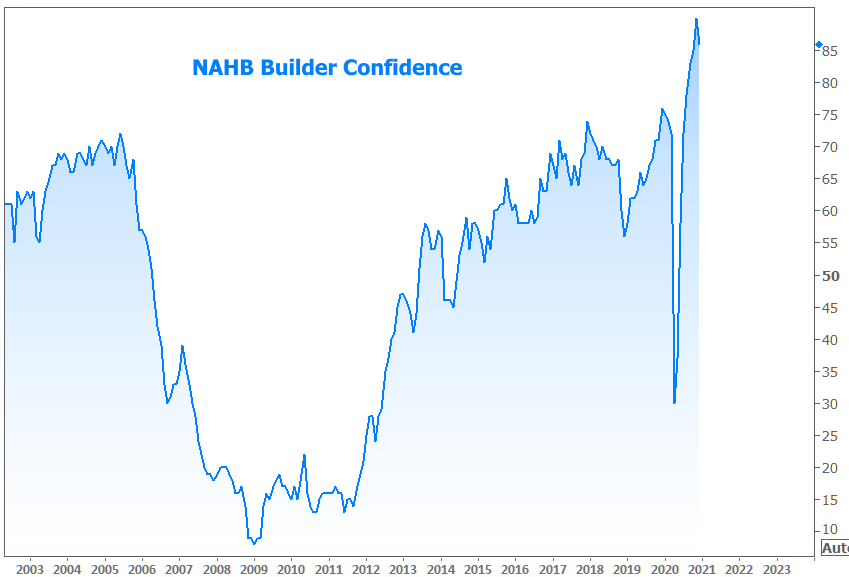After setting successive survey highs in September, October, and November, the National Association of Home Builders (NAHB)/Wells Fargo Housing Market Index (HMI) retreated a bit this month. The HMI, which is a measure of home builder confidence in the new home market, fell 4 points to 86. Despite this decline, it was still the second highest reading in the HMI's 35-year history. Only the November 2020 reading of 90 was higher.
NAHB economist Robert Dietz said, "Housing demand is strong entering 2021, however the coming year will see housing affordability challenges as inventory remains low and construction costs are rising.
"The issues that have limited housing supply in recent years, including land and material availability and a persistent skilled labor shortage, will continue to place upward pressure on construction costs. As the economy improves with the deployment of a COVID-19 vaccine, interest rates will increase in 2021, further challenging housing affordability in the face of strong demand for single-family homes."

Derived from a monthly survey of its new home builder members, the HMI gauges builder perceptions of current single-family home sales and sales expectations for the next six months as "good," "fair" or "poor." Builders are also asked to rate buyer traffic as "high to very high," "average" or "low to very low." Scores for each component are then used to calculate a seasonally adjusted index where any number over 50 indicates that more builders view conditions as good than poor.
All three component indices matched the 4-point decline in the composite. The index gauging current sales conditions dipped to 92, future sales expectations landed at 85 and the gauge of prospective buyer traffic was at 73.
Looking at the three-month moving averages for regional HMI scores, the Northeast fell one point to 82, the Midwest was up one point to 81, the South rose one point to 87 and the West increased two points to 96.







